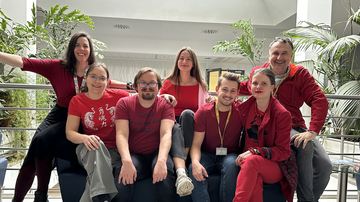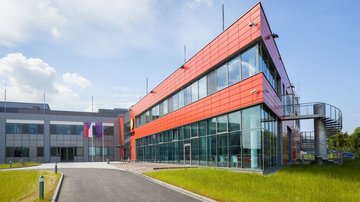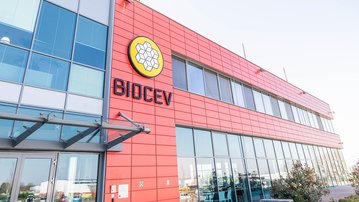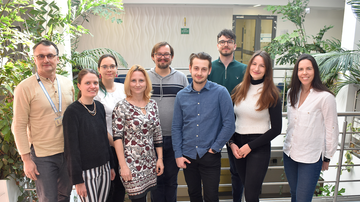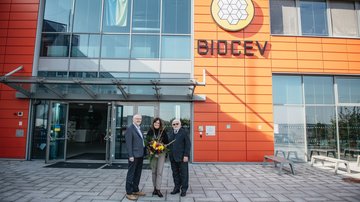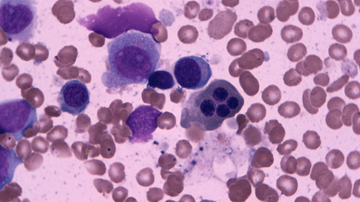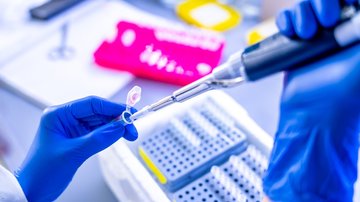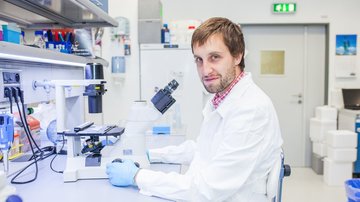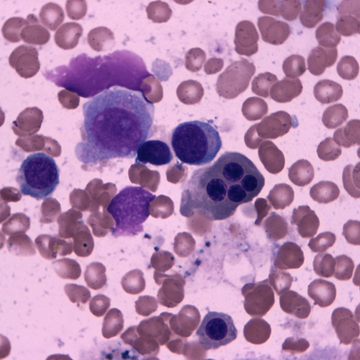
Laboratory of Haematooncology and Stem Cells
Czech physicians and researchers to prolong the lives of people with leukaemia
A team of researchers and physicians from the BIOCEV Centre, the First Department of Medicine - Hematology (the First Faculty of Medicine of Charles University) and the General University Hospital in Prague has designed a new approach for the treatment of acute leukaemia. This innovative method involves the combination of two medicines that, when administered together, have significantly prolonged the survival of patients. The clinical trial lasted five years and included 76 patients from the Czech Republic. Information about the new type of treatment was published by the prestigious Blood Cancer Journal from the Nature Publishing Group. At the moment, negotiations are underway to expand the trial to the European-wide level.
Myelodysplastic syndrome (MDS) is a cancer of the bone marrow causing a low production of non-functioning blood cells. As a result, patients are deficient in both red and white blood cells, which are crucial for the body’s immunity, as well as platelets for blood coagulation. Patients suffering from this anaemia suffer from bruising, frequent internal bleeding and are less resistant to bacterial and viral infections, for example pneumonia.
Depending on the severity of the disease, antibiotics or repeated blood transfusions are given as treatment. In exceptional cases, patients can be treated with a bone marrow transplant. In Europe, four MDS patients per 100,000 people are diagnosed annually. In the Czech Republic, the General University Hospital registers approximately 80 patients each year. The critical phase of MDS is the transition to acute myeloid leukaemia (AML), characterised with a very short survival time.
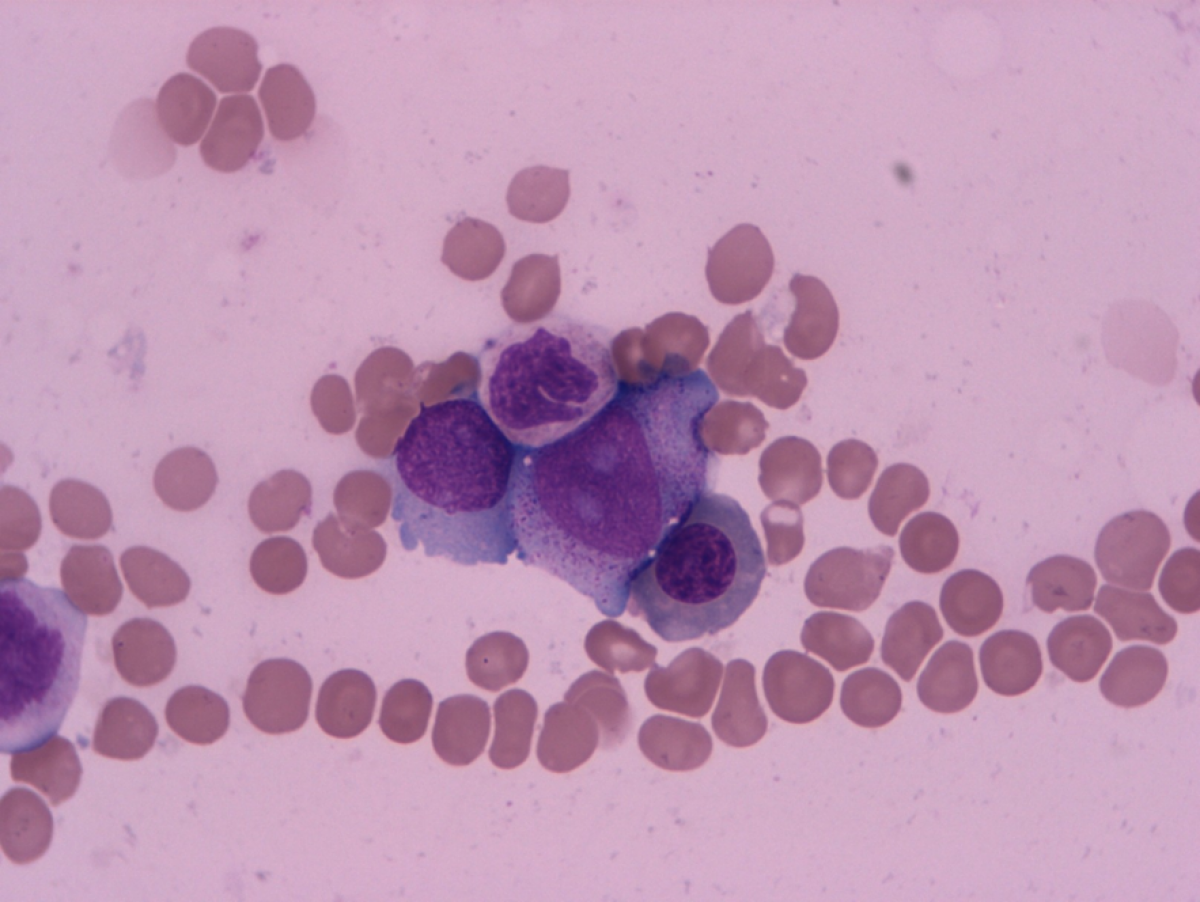
"The current globally applied treatment for MDS patients during their transition to AML is based on 5-azacytidine, a medicine which was invented in the 1970s by the Czechoslovak Academy of Sciences. Azacytidine is an inhibitor of nuclear enzymes, referred to as DNA methylases, which are genetically and functionally disrupted in leukemic cells, and therefore, their activity helps to eliminate leukemic cells. Based on previous research, much of which has been published in reputable journals, our MDS/AML group has come up with the concept of “differentiation therapy for MDS”. We propose combining azacytidine with another substance called G-CSF, which promotes the formation and development of white blood cells in the bone marrow. We have been able to demonstrate the therapeutic effects of the new combination, and, above all, its safe effect on patients, but we have also been able to prolong their survival by months,” says Prof. Tomáš Stopka, head of research from the First Faculty of Medicine, Charles University, and Biocev. “At the same time, we have discovered that the combination of these agents induced significantly more treatment responses, which is ground-breaking and essential for further research and clinical testing in patients.”
A clinical trial demonstrating the benefit of the new treatment method in high-risk MDS was approved by the State Institute for Drug Control in 2017. The coordinator of the clinical trial was the Head of MDS and AML Treatment and Diagnosis, Doc. Anna Jonášová from the 1st Internal Clinic – Haematology, First Faculty of Medicine, Charles University in Prague: “We had to make a huge effort even before the trial itself was launched as we had to secure an application with the State Institute for Drug Control and have the trial pass through the ethics committees. The proposed therapeutic combination advances the use of the cytokine G-CSF in AML therapy, while its synergistic activity with azacytidine makes this treatment more effective and safer for patients, representing a proven strategy that is immediately applicable in practice. We would not have achieved the results if it had not been for the great willingness of the patients who participated in the trial."
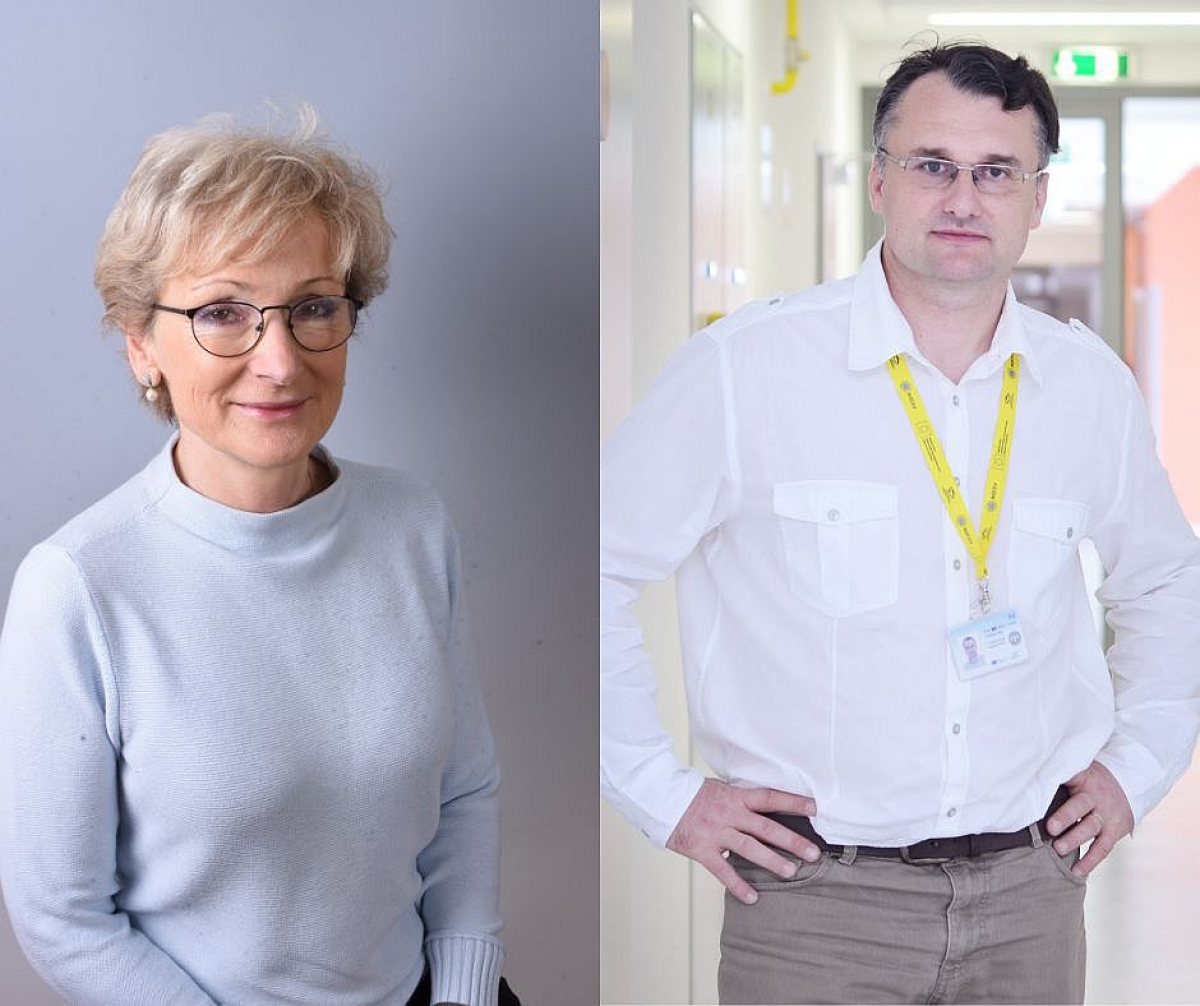
At the moment, intensive negotiations are underway for a new European-wide trial in which another medicine, Venetoclax, will be investigated alongside 5-azacytidine and G-CSF. "I am happy that we are successfully linking genetic and clinical data in the Czech Republic and thanks to this, we are able to determine how acute leukaemia will be treated in the near future," adds Prof. Tomáš Stopka.
Link to the publication: HERE


